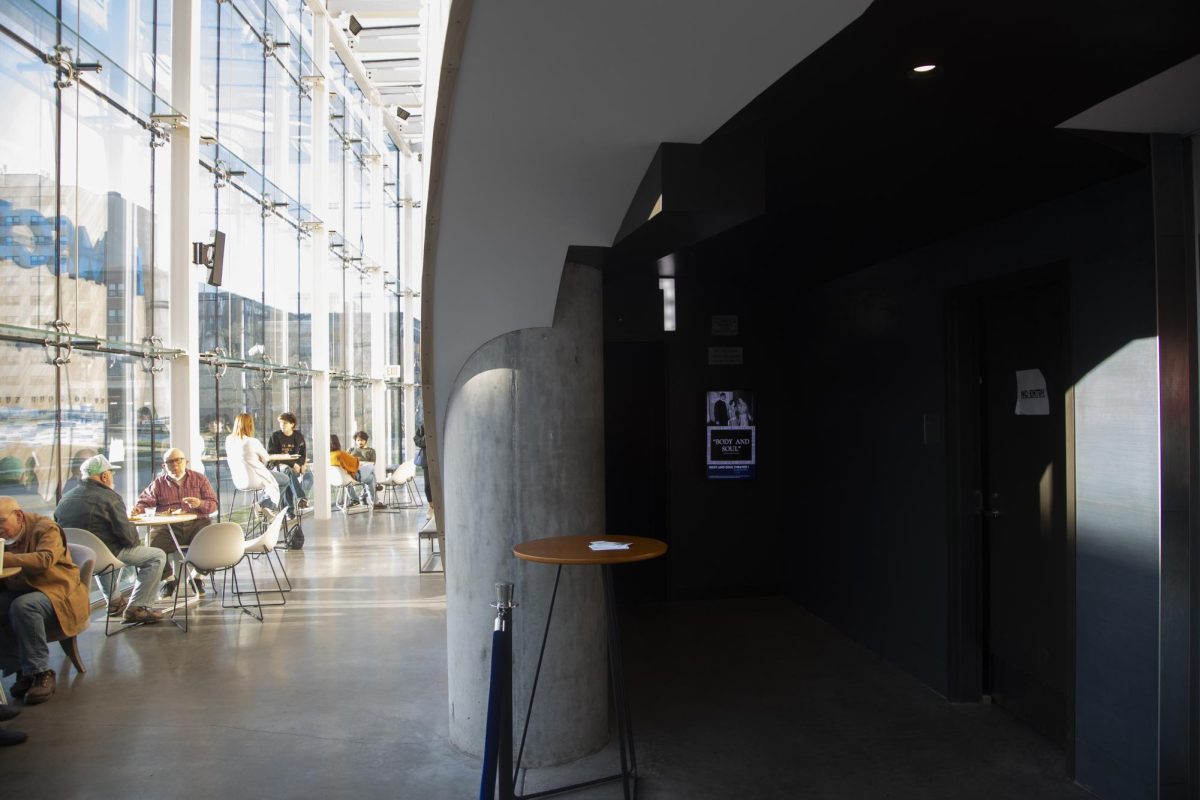Film preservation is fundamental to keeping the medium alive. With how rapidly filmmaking technology advances, older work can get lost because it never saw a wide release, had few copies available, or was never archived.
Historically, the films of Black female directors tend to get the least attention in preservation efforts.
In collaboration with countless others, Hayley O’Malley, University of Iowa Cinematic Arts professor and director of graduate studies, has been working to bring these underseen films to the limelight.
“It celebrates the vibrancy and richness of Black cinema. We specify in rarely seen, newly restored, films or documentaries that are engaged with archival footage,” O’Malley said.
This time last year, O’Malley and her team of graduate students put on a three-week screening series in collaboration with FilmScene’s programming director Ben Delgado. After a successful initial run, the series returned in the fall with monthly screenings.
“We started building an audience and have found people who mark their calendars every month,” O’Malley said.
While preservation is an important part of the series’ mission, it is equally important to screen them for the graduate students involved in the program. Zach Vanes is one such UI graduate student who has been involved in the series since last year.
Vanes described the importance of the communal nature of screenings for achieving what the series intends to achieve. Each event is initiated with a reception and serves food from local restaurants, followed by a film screening and a talk-back with the filmmaker if possible.
“We don’t want it to feel stuffy or pretentious. It is serious, but rather than turn into a lecture, we want to make it as inviting as possible,” Vanes said. “It’s community building, which always starts with a good meal.”
The series presents work from multicultural, multigenerational artists, so opening such diverse films up to an audience as possible is paramount for the team. Over the year the series has been running, the screenings have become increasingly diverse, too.
“This year we’ve been presenting more international films. That’s something we want to do even more in the future: platform African Diasporic work,” O’Malley said.
“There has also been a recent uptick in presenting experimental work, which always leads to great conversations,” Vanes added.
The film selection process mostly comes from digging through UI media archives, American Film Institute screenings, or the presentations at the Sojourner Truth Festival of the Arts — the first festival for Black women filmmakers, which began in 1976.
“We select our films with my grad students, Ben, and the African Diaspora Committee, which is made up of students, professors, and community members,” O’Malley explained.
While current cinema students play an important role in the organization and moderation of these events, the series serves as a platform with which previous students from around the country can share their own work.
The L.A. Rebellion is a movement that began in the late 1960s at the University of California, Los Angeles, film school, where Black artists designed a cinematic landscape of work to ignite social change. Films denouncing the Vietnam War and advocating for the Civil Rights movement were popular around this time until new classes of filmmakers entered the program and began using film as a means to portray other social issues.
The Out of the Archive series has already screened several of these films but hopes to obtain more student work in general in the future.
“A lot of people have been to film school and made extraordinary work that hasn’t been screened,” O’Malley said. “We want to bring people those films people don’t know about. We screened Maya Angelou’s first film from the 1970s at one of our earliest events, and that’s a film so unknown it might have been the first public screening.”
However, preserving films can be time-consuming and expensive. The Out of the Archive series hopes to assist in not only bringing obscure films to a wide audience but also in compensating artists who may have never reaped financial benefits from their work.
“Some of the women who have participated have told us ‘I don’t know how many times I’ve been asked to talk about my films and not been compensated,’” O’Malley explained. “And this is something that happens disproportionately with Black women artists.”
Last month, the short films of Aarin Burch, a Black, queer filmmaker whose work is often deeply personal, were screened as a part of the series. Their films, shot on a 16mm film camera, were screened across the country in the 1990s.
But as Burch moved on to other careers, their films became harder to find screening anywhere; the Now, as they venture back into filmmaking, they struggle to find the funding to preserve their 16mm films, which require specific compatible projectors to screen.
“Artists like Burch show their films to grant boards and try to explain why their work is worth preserving,” O’Malley said. “The way you do that is to demonstrate that there is an audience for them, and so [they] can point to programs like what [they] did at Filmscene to prove [their] films matter.”
On Monday night, Out of the Archive presented “Body and Soul,” directed by Oscar Micheaux. Accompanied by a live score from the Alvin Cobb Jr. Trio, the screening was sold out. The event marked the first year since the series began, and it shows no signs of ceasing.



